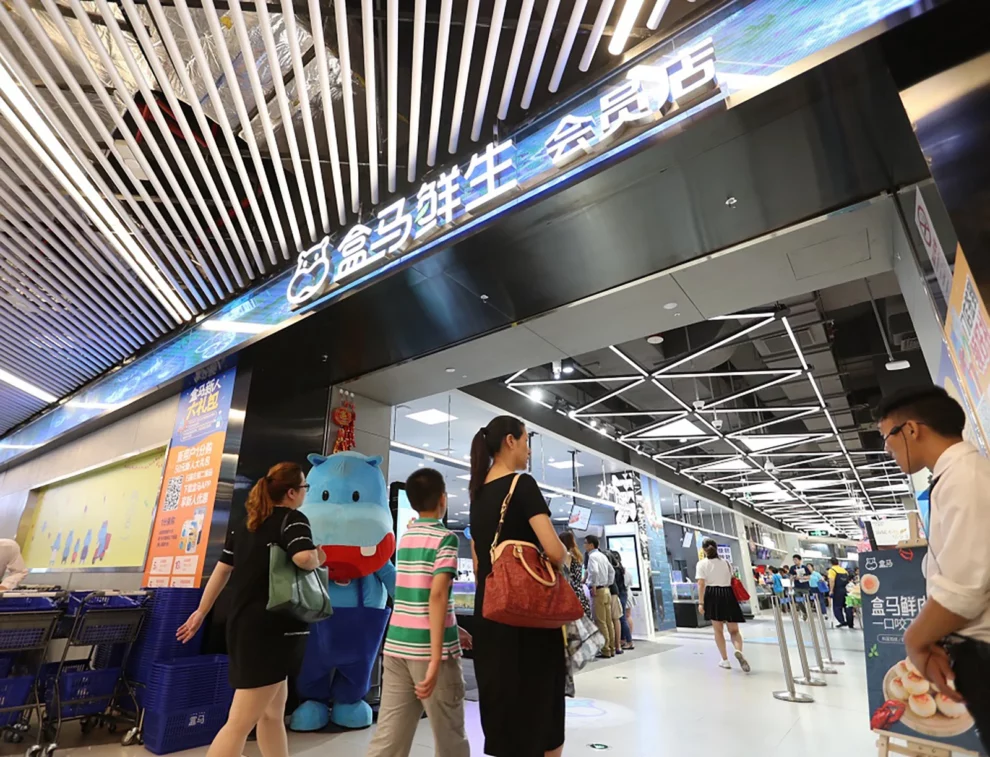For Chinese e-commerce giant Alibaba, the consumption rebound has yet to arrive in full.
The company operates two of the largest online shopping sites in China, Taobao and Tmall. Despite a rise in competition, Alibaba’s results remain an important indicator on the economy.
“From January to early February of this year, overall sales of online physical goods remained weak,” Alibaba CEO Daniel Zhang said Thursday during a quarterly earnings call, according to a FactSet transcript.
“Our China commerce continued to be highly impacted due to Covid cases as well as people traveling home or to other places during the Spring Festival holidays,” he said, referring to the Lunar New Year in late January.
But Zhang said that after the holiday and the Covid wave, demand for apparel, sports and outdoors products recovered.
China abruptly ended its stringent Covid controls in early December. Following a wave of Covid infections, business activity started to return to normal in the last two months. Rule changes allowed people to easily travel domestically and internationally again.
Consumers in China still live in an economy dealing with a real estate slump and a drop in global demand for Chinese exports.
Alibaba’s Zhang was relatively cautious in his comments about the economic recovery. But he was optimistic that business would pick up later in the year.
“What we see across all merchants is a strong desire to get back to business,” Zhang said. “They want to have a bumper year in 2023 to make up for everything they lost over the past three years.”
Alibaba’s China commerce revenue in the last three months of 2022 fell by 1% to the equivalent of $24.64 billion, accounting for 69% of total revenue. Overall results for the quarter came in well above expectations.
Restaurants in China also saw a muted start to the year, and only started to see a significant recovery in revenue in the week ended Feb. 16, according to analysis from Beijing-based BigOne Lab, an alternative data company whose backers include S&P Global.
The weekly data showed that after a sharp recovery in revenue in 2021 from the initial shock of the pandemic in 2020, revenue growth for 2022 was essentially subdued.
Restaurants in smaller cities generally fared better than those in larger ones over the last few months, BigOne Lab data up to January showed.
Nationwide, catering sales fell by 6.3% in 2022, while retail sales overall dropped by 0.2%, according to China’s statistics bureau.
The bureau is set to release national retail sales for January and February on March 15. The two months’ data are typically combined due to variations in the timing of the Lunar New Year holiday, which doesn’t follow the Gregorian calendar.
China is also expected to announce its 2023 economic targets, including for GDP, on March 5.
What other companies are seeing
Other major Chinese consumer-facing companies JD.com, Meituan and Pinduoduo have yet to announce when they will release earnings for the latest quarter.
However, video streaming platform iQiyi
, sometimes dubbed China’s version of Netflix, reported this week a net addition of 13 million subscribers at the end of December versus September — a significant increase after subscriber growth stagnated in the last two years.
The company expects subscribers will grow this year. In January, the platform’s newly launched shows included police drama “The Knockout,” whose popularity iQiyi claimed soared to a record in the company’s history.
Source : CNBC
















